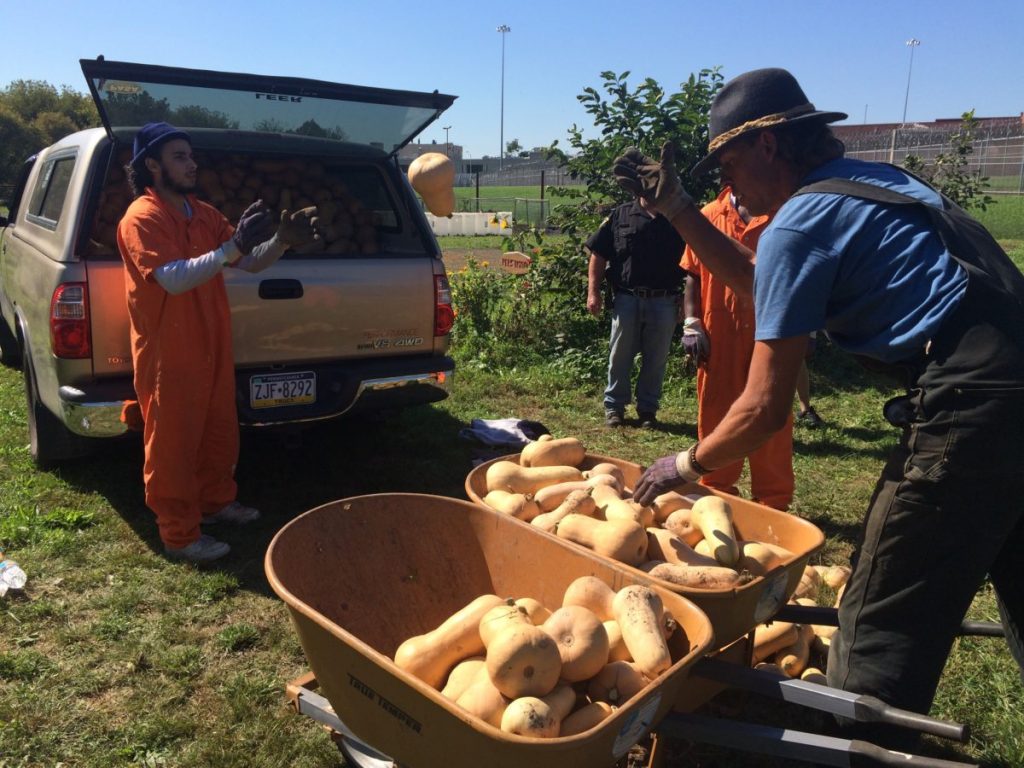Beyond the obvious, a harvest of healthy produce or beautiful landscaping, the benefits of gardening are immense. Gardening is also linked to stress relief, brain health and boosting self-esteem.
To find out more read 6 Unexpected Health Benefits of Gardening at EarthEasy.com.
So with all the benefits that gardening provides, it seems like a no-brainer to get people involved especially people that might need some extra help. That is part of how the Philadelphia Prison System got to the idea to turn unused green space at one of their correctional facilities into an “opportunity for workforce development and re-entry support for inmates.”

Photo by Civil Eats – Source
Laura Cassidy, Sustainability Manager for Philadelphia Department of Prisons, has created an orchard, a mini-farm and a compost facility out of two acres of unused green space at Philadelphia Industrial Corrections. They currently have 250 trees and 5 raised planting beds.
The program is a partnership with Temple University, the Philadelphia Prison System, One Village Farm, the Department of Public Health and the Mayor’s Office of Reintegration Services. At the end of the program the students earn a Vocational Certificate in Organic Agriculture from Temple University.
The program curriculum includes:
- Life skills, nutrition and food literacy.
- Job skills like resume writing, interviewing, goal-setting, and public speaking/presentation delivery.
- Theoretical and experiential learning on organic farming, composting, and fruits and vegetable culture.
One of the goals is to teach the inmates skills necessary to get employment within green industries like organic farming or composting.
Until 2011, sustainability was not a priority within most prison systems in the U.S. At that time the National Institute of Corrections (NIC) published The Greening of Corrections Creating a Sustainable System a report designed “to assist the corrections field in moving towards a more holistic and sustainable approach.”
The stated goals in the report were to help correctional professional learn (from the report):
- To build or transform correctional agencies into self-sustaining facilities,
- To identify green job training programs and jobs for prisoners that provide quality employment opportunities in the emerging green economy, and
- To make prison industry products, jobs, and services more environmentally friendly.
A decade ago the Philadelphia Department of Prisons wasn’t even recycling but now, thanks to a more environmentally friendly Philadelphia and Cassidy’s dedication, they have implemented a single-stream recycling program. This program took them from nothing being recycled to around 300 tons of recyclables each year.
Civil Eats reports that the program also “diverts 685 tons of food waste a year into compost, saving the city more than $40,000 in landfill costs.”
“For Cassidy, the point of all this is simple: she wants to see the inmates learn and leave—and hopefully never come back.”